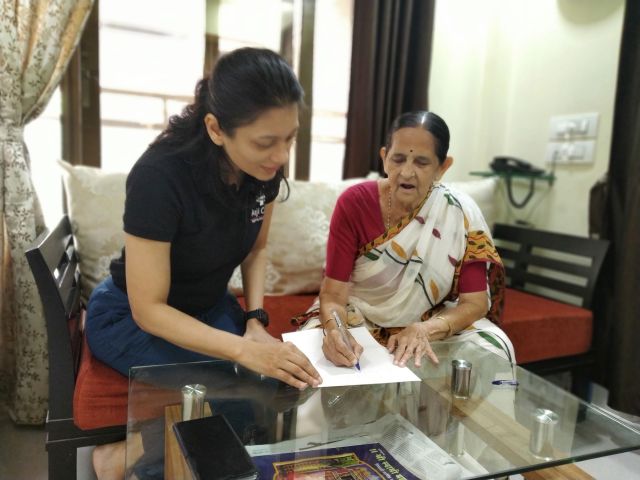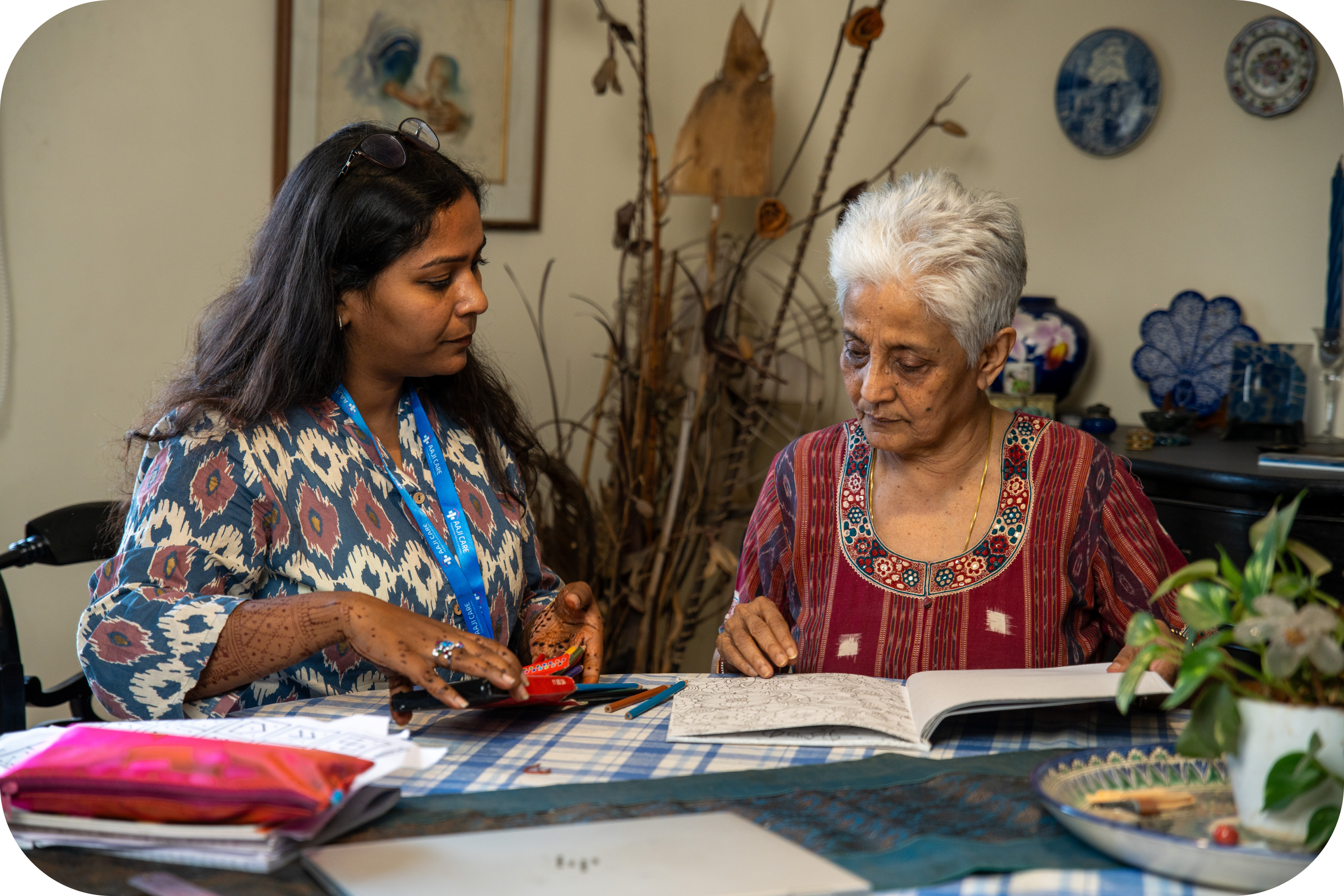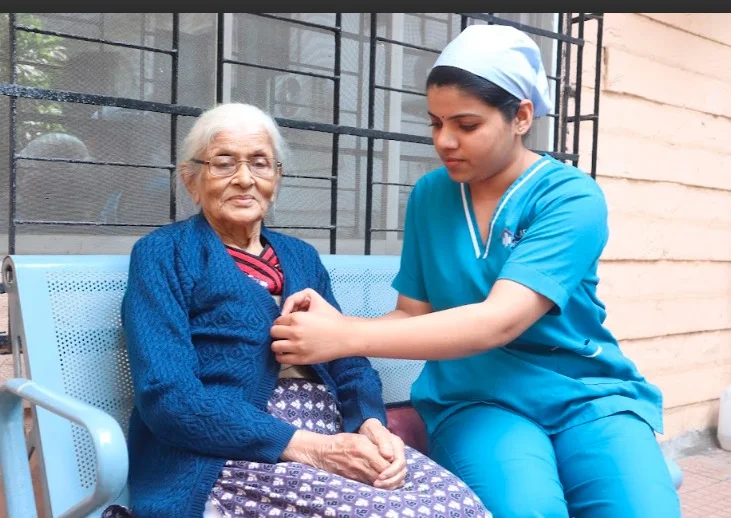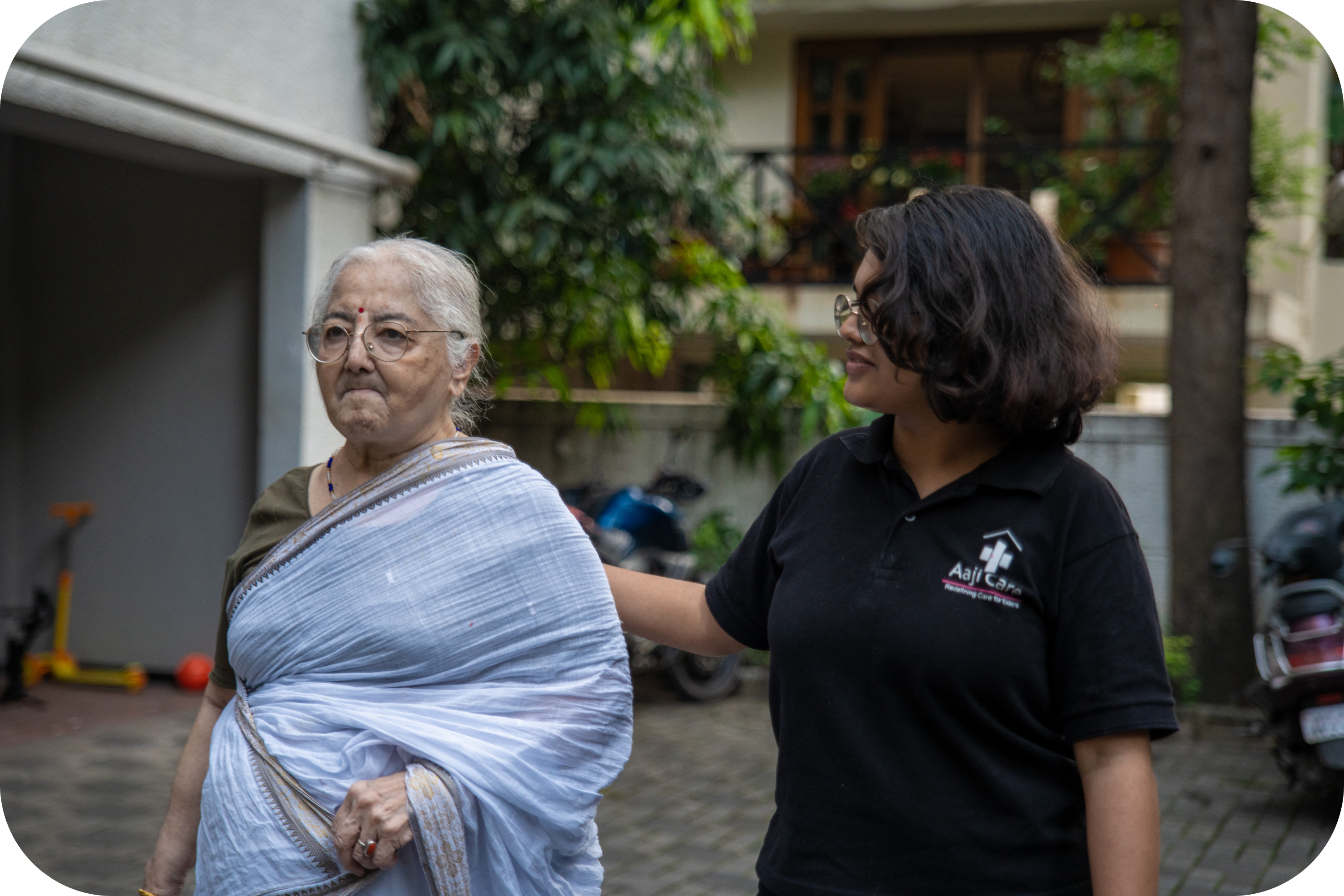
Better Care Options For Elders With Dementia
Better Care Options for Elders with Dementia
The smell of burnt milk and a vessel filled up the entire home. Sanjay rushed to the kitchen and turned off the gas. The vessel was charred. The overflowing milk had extinguished the gas flame and the knob was on. A few more minutes and the situation would have turned into a disaster. “Not again, Amma!” Said Sanjay, somewhat exasperated, but sounding more worried than angry. As he went back to work, he made a mental note that this was the nth time that Amma had forgotten something important that could have been a serious issue. “ I must take her to the doctor and find out why this is happening so often” Sanjay fixed up an appointment with Dr. Soonawala, a well-known neurologist at Sewa Hospital in Girgaon, Mumbai. Amma was intimidated at the thought of visiting a neurologist and tried to brush off her forgetfulness by saying that with age, all senior citizens tend to forget minor events. But Sanjay was firm, and they finally met the neurologist. Sanjay explained to the doctor that he had noticed distinct changes in his mother’s behavior over the past 18 months. Amma heard in bewilderment as Sanjay described to Dr Soonawala, that nowadays, his mother often forgot the names of the extended family, found it hard to remember if she had eaten her meals, not flush the toilet after use, or often had no recollection of events that happened during the day. The entire family comprised of Sunita, Sanjay’s wife, their two children Priyanka and Yash, and Sanjay’s father Mr Unnikrishnan, were increasingly getting concerned by the new aspects of Amma’s behavior. This year, Amma had turned 76. She had taught Chemistry in senior college and retired in 2005. After a lifetime of hectic career, managing a home, and children, and looking after her in-laws, Amma had never been able to pay attention to herself or her hobbies. She had decided to enjoy her retirement. Apart from helping out with household chores, she decided to keep herself busy by joining a Yoga class, going for walks, a sangeet group, and watching television. She seemed happy and content and life went on smoothly. However, for the last few years, the family noticed that she had started growing somewhat distant. She seemed lost, confused, and spoke less. She withdrew from her outside activities and seemed to have lost confidence as well as interest in doing what she liked.
After explaining to Dr Soonawala her symptoms, the doctor asked them to carry out some tests on her. He started off with some anti-anxiety medicines till then, and for some days, Amma seemed to sleep better and looked rested. The doctor wanted to rule out any physiological aspects of her growing listlessness and then recommend further treatment. There seemed no obvious or serious issues with Amma’s health but her sense of well-being lasted only for a few days. The Doctor informed them that she had started suffering from dementia and there were chances that it could progress rapidly shortly.
Amma started declining rapidly. Her orderly routine of morning coffee at seven, walking with her husband, systematic breakfast, bath and reading the papers, afternoon lunch preparations, and a post-lunch nap- had become a thing of the past. Her thoughts seemed jumbled. She would be holding her paper for hours together in front of the eyes without turning the page, and if Sanjay asked her what she had read, she had no recollection. Amma’s forgetfulness and increasing chaos started impacting the Unnikrishnan family severely.
Sanjay and his wife would leave for work, the children went to their colleges, and Appa and Amma were left alone at home. One day, Amma walked out of the house apparently to meet her school friend Indu, who lived actually in Kerala. But in her muddled state, Amma believed that she was still in Coimbatore (where she grew up and studied) and Indu lived only a few houses away. When Appa discovered that Amma had disappeared, he panicked. After trying to look for her in the neighborhood, he finally called Sanjay. Sanjay was in the midst of an important meeting, but he left it immediately and came home when he heard of Amma not being found. After an agonizing half-day search and frantic calls to friends and family, Amma was finally brought home by the local chemist. He knew Amma and Appa and had found Amma wandering in the local market, trying to search for something. He realised that something seemed unusual, and gently coaxed Amma into accompanying him back home. On seeing her, Sunita and the kids burst into tears, and Sanjay and his father heaved a sigh of relief from the excruciating tension they were under. This incident set Sanjay thinking. The doctor had warned them that in some cases, dementia may progressively worsen very rapidly and then it may become very difficult for the family to manage Amma’s needs. Amma needed more attention and care. Appa, now turning 80, was left alone with the entire day and did not have the physical and mental strength to offer that. Sanjay asked the doctor if he could employ a caretaker for his mother and found a few from agencies. The experience with the caretakers did not go smoothly for the Unnikrishnan family. The staff coming in was often not aware of handling dementia patients. Frequent absenteeism, lack of commitment, and proper training increased the difficulties for the family and Sanjay was unhappy about the quality of care being offered to his mother. He was also worried about the growing stress of his father, who had undergone a bypass six years back. Sanjay and Sunita decided to discuss all their challenges with their doctor. The doctor heardthem out and suggested that one option to ease off the situation was to admit Amma to a geriatric care center that had the facility to look after patients with dementia or Alzheimer’s.
He recommended a few in the same city and told Sanjay that he was a visiting doctor in a few of them. The Doctor’s suggestion caught Sanjay by surprise and his immediate reaction was denial. He felt concerned about leaving his mother in the hands of unknown people, away from her loved ones, and felt that he was failing as a son. When he shared his misgivings with the doctor, the Doctor was most reassuring. He explained to Sanjay that allowing your parent to be cared for by a geriatric care center did not mean that the family washed their hands off the person. It simply meant that they could offer her better and more attention. The facility was well-equipped and staffed with trained assistants. There were regular doctors’ visits, physiotherapy, Yoga, and activities planned for the elders. The center had elder buddies for every person admitted, who monitored the senior citizen’s routine, health, and progress. Apart from helping the patient with their daily routine of brushing, bathing, food, and giving medicines on time, the buddy also took them for walks, scheduled Yoga and Pranayam sessions, played board games, solved puzzles, and helped in repeating physiotherapy exercises.
The doctor explained to Sanjay that sending Amma to stay at the center was not a bad idea at all. There, she would get better and more care. She would be watched by the staff round the clock and it would also help ease off Appa’s pressure. They could always visit Amma at any time and be updated by the center about her condition. Sanjay and Sunita discussed the doctor’s suggestion and realized that Amma deserved all the care and comfort now in this situation, just the way she had cared for the entire family all her life., Instead of forcefully keeping her at home with less manpower and help, admitting her to the facility was certainly going to be more beneficial for her. Sanjay and Sunita hesitantly shared the doctor’s suggestion with Appa. To their surprise, Appa was far more open to the idea as he felt that it would help Amma to slow down the progression of her dementia. Together, the family informed Dr Soonawala of their decision and soon, the process of transitioning began. This decision did not come to them easily- concerns about Amma and her well-being worried the entire Unnikrishnan family. After all, would complete strangers be able to care for Amma with the same love and warmth that the family did? With a heavy heart, Sanjay and Sunita gathered Amma’s belongings and ensured that she was well settled in a new place. At first, Amma seemed lost- there were so many new faces, people that she didn’t know, doing rounds around her all the time. However, the Unnikrishnan family stayed with Amma long enough for her to feel comfortable, and left only after they felt assured of her safety and comfort. The center being nearby helped tremendously as all of them could make Frequent visits to see her. Soon enough, Amma was settled. The center provided all its members with the best possible facilities:- there were attendants, nurses, psychologists, and doctors available around the clock. Each day was different for all the people at the center. On some days, they would have specialized professionals who engaged the elders in dance and movement therapy. Physiotherapists often did the rounds, and so did psychologists who could help the elders deal with challenging emotions and behaviors. The elders were given nutritious food, customized to each one of them keeping in mind their physiological histories. The attendants made sure that the elders were given their medications on time, and were well rested. In the evenings, many elders would gather together to enjoy a cup of tea, read, or play games. Amma slowly but steadily adjusted to this new phase of her life. Despite living with a degenerative illness, it was visible to the Unnikrishnan family that the progression of her symptoms was slow. She felt a sense of belongingness amongst the rest of the elders around her, and even made some friends- this time, remembering all their names correctly, proudly introducing them to Sanjay on one of his visits. While it was difficult to not have Amma around at home all the time, everybody was able to see that Amma was in a place that cared for her as much as they did- if not more and that she deserved all the help that she was receiving. Seeing Amma happy and cared for; the Unnikrishnan family learned a very important lesson- you can feel sad about making the right decision and make it anyway- and that sometimes, there are people who know better than we do, how to care for those that we love the most. And to be willing to receive help for the ones we love is an act of service, not something to be afraid of!





